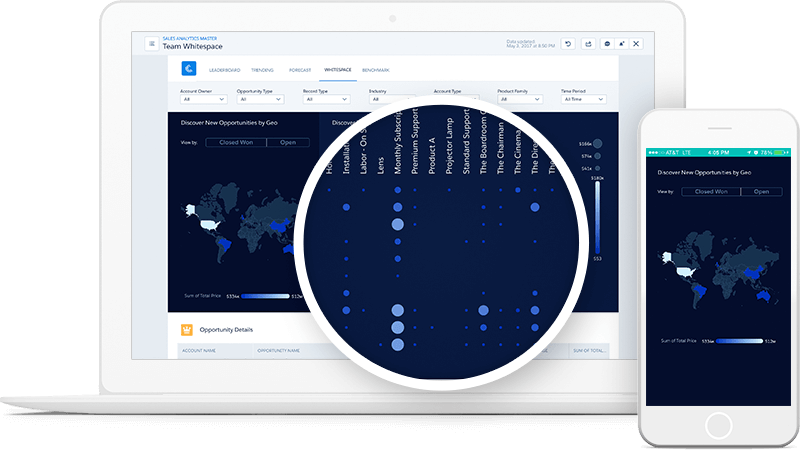artificial intelligence
What is artificial intelligence and how can small businesses use it?

Artificial intelligence (AI) used to merely be the subject of science fiction, but during the latter half of the 20th century, and now into the 21st, it has become a core part of our everyday lives.
AI can inform everything, from the technology used in hospitals and the military to the toys and games children play with. It can also have a beneficial effect on marketing, especially for small businesses. In our introduction to artificial intelligence, we lay out its past, present and potential future, and explain how small businesses can use it to increase efficiency and aid growth.
What is artificial intelligence?
AI refers to independent intelligence as displayed by a man-made machine, such as a computer. It has sometimes been referred to as machine intelligence, and the process through which it learns is termed machine learning. The aim of AI is to replicate the human cognitive process so perfectly that a machine can think and act like a human being would in any given situation.
Amazon, Apple, Google, IBM and many other major international companies are heavily involved in research around artificial intelligence. Examples include the personal assistants Siri and Google Assistant, as well as the question-answering system IBM Watson.
How does artificial intelligence work?
It can be difficult to understand what is and isn’t AI because all computers, machinery and software display some level of intelligence. A good way of differentiating between regular computing power and true artificial intelligence is that true AI doesn’t simply respond in a way that it has been preprogrammed to. Instead, it uses programming to learn independently and has the ability to perceive visuals, recognise speech, understand the meaning and context of information and ultimately make decisions based on them.
For example, an Excel formula that multiplies two numbers could not be deemed artificial intelligence. Excel has been programmed to multiply those numbers when the multiplication symbol is used in a formula, so it doesn’t truly ‘understand’ the act of multiplying, just the meaning of a symbol and the value of the numbers. However, spam filters, plagiarism checkers and recommendation engines on retail websites can be termed artificial intelligence as those technologies use their programming (in the form of algorithms) to learn from new inputs, assessing patterns within them, and deliver different responses.
How can small businesses use artificial intelligence?
The size of the companies involved in its development can make artificial intelligence seem inaccessible for small businesses, but that’s a misapprehension. AI can be implemented in a way that can be useful to companies of all shapes and sizes: to help solve logic-based problems.
Google Assistant, Siri and Cortana have made artificial intelligence even more visible in the public’s day-to-day lives, but while they can seem complicated, they follow the same essential logic as Watson: they solve problems by analysing the data around them. For example, when a user says, ‘OK, Google, show me the way to the nearest Italian restaurant’, AI in Google Assistant assesses the data it has (location of the user, locations of the nearby Italian restaurants, and the number of routes available to get to them) and then uses its ‘intelligence’ to provide information about the nearest Italian restaurant.
Such problem-solving power has numerous applications for small business, in both internal and customer-facing operations.
Customer-facing uses
Customer service is one of the most important aspects of running a small business, and it’s one of the most difficult to get right. Businesses can spend many unnecessary hours dealing with customers whose enquiries could be answered quickly and easily through automated means. Chatbots and other forms of automated messaging systems can perform this task.
A chatbot is a piece of software that can be installed on a business' website. It’s designed to engage in conversation with a human being in the same way another human being would, and acts like an instant messenger service, using text to communicate. When a customer accesses the website, they are presented with the chatbot and asked if they need assistance. If the customer responds in the affirmative, the chatbot will use artificial intelligence to answer and continue the conversation. Email enquiries can be set up to work in the same way.
The technology offers different levels of automation. Either the whole process can be automated from beginning to end, so the customer never deals with a human at any stage in their request, or the AI can deal with a portion of the request and then refer the customer to a human operator. The technology’s algorithms make this decision. They analyse the conversation’s progress, compare it to previous conversations of a similar nature, and take on a range of other data points to judge whether or not human intervention is necessary.
Used in this way, artificial intelligence has the immediate impact of freeing up staff to work on more pressing matters, such as customer management that absolutely can't be performed by AI.
It can also drive learnings. AI can provide insight into the nature of the enquiries quicker and more effectively than humans could. Armed with this information, businesses can identify the major pain points their customers experience and develop ways to resolve them. The net result is happier customers and more efficient processes.
Internal uses
Artificial intelligence also has significant applications for sales managers. Today, 88% of companies are using solutions that rely on some level of AI. Meanwhile it has been predicted that by 2020, 85% of the customer-company relationships will be handled without the intervention of a human member of staff.
There are two primary ways in which the adoption of AI is happening: predictive lead scoring and sales forecasting.
Predictive Lead Scoring is based on the same idea as traditional lead scoring: each lead that comes into a company is given a numerical score based on a set of qualifying factors and the sales manager uses that score to decide which leads to pursue. The difference with predictive lead scoring is that it uses AI to automate this process. It achieves this through an algorithm that assesses the information it’s being given — and has been given in the past — and draws conclusions about the quality of the lead.
Using predictive lead scoring can help businesses understand their leads more deeply, reduce the potential for human error and help improve efficiency.
Sales forecasting can be a time-consuming and stressful process that’s open to human error, but it’s a critical part of any small business’ operations. By using AI tools, forecasting can be sped up, streamlined, and made much more reliable. It works by analysing historical data about won and lost leads, as well as external factors such as the weather, to draw core conclusions about what happened in the past.
These conclusions are then applied to the current pipeline and a forecasting insight is offered. The technology is still developing and the insight is unlikely to always be 100% correct, but it can already be more precise and more valuable than forecasts made by humans.
Do small businesses need to learn artificial intelligence?
While some small businesses may feel it’s beneficial to have a data scientist or someone familiar with AI on staff, it’s not absolutely necessary. At its best, AI is easy to use, empowering small businesses to enhance the way they work and focus on growth. That philosophy was at the centre of Salesforce’s creation of Einstein, a comprehensive set of AI technologies that powers our products.
Einstein is integrated into these Salesforce tools: Sales Cloud, Service Cloud, Marketing Cloud, Salesforce Platform, Analytics Cloud, and Community Cloud. This means that there’s no need for any business using those products to worry about implementing it, preparing data or managing any models. Sales managers simply need to add their data to the Salesforce platform and Einstein will take care of the rest.
Salesforce users can also use our educational platform Trailhead. Across eight modules, Trailhead can teach users the basics of AI and how Einstein can be used to prioritise leads, build predictions and ultimately increase efficiency. Find out more by visiting Trailhead.
Conclusion
Artificial Intelligence tools are no longer the domain of large corporations with expensive budgets and the technology has come a long way since the early days of supercomputers on college campuses and military bases. It now informs our day-to-day lives, personally and professionally. Small businesses have plenty to gain by embracing the technology and its benefits to go beyond simply automating processes. New customers, happier existing clients and the business growth that comes with them can be earned by using AI to its full potential.



